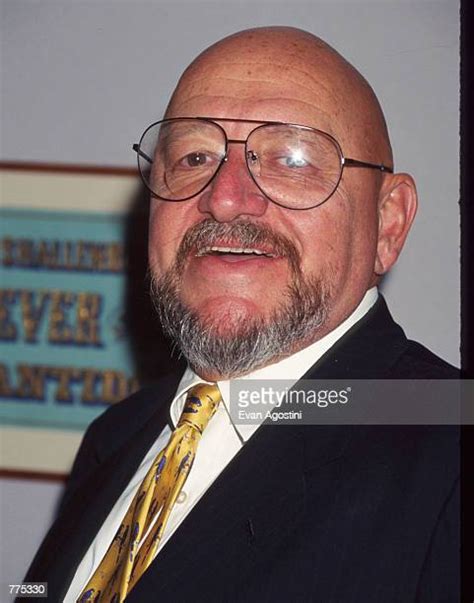A Quote by William Bernbach
There are a lot of great technicians in advertising. And unfortunately they talk the best game. They know all the rules. They can tell you that people in an ad will get you greater readership. They can tell you that a sentence should be this short or that long. They can tell you that body copy should be broken up for easier reading. They can give you fact after fact after fact. They are the scientists of advertising. But there's one little rub. Advertising is fundamentally persuasion and persuasion happens to be not a science, but an art.
Related Quotes
We tell the for-profit sector, 'Spend, spend, spend on advertising until the last dollar no longer produces a penny of value,' but we don't like to see our donations spent on advertising in charity. Our attitude is, 'Well look, if you can get the advertising donated (at four o'clock in the morning) I'm okay with that, but I don't want my donation spent on advertising, I want it to go to the needy,' as if the money invested in advertising could not bring in dramatically greater sums of money to serve the needy.
Trump doesn't need to spend a dime to get his message out. Trump doesn't have to run an ad. Trump doesn't have to run a series. He doesn't have to pay people to show up. He doesn't have to buy TV advertising, because he gets more coverage than the combined advertising the rest of the Republicans could buy. And aside from the overwhelming, significant upset that is, the very fact of all that ticks them off. Donald Trump has direct access to his supporters. And you know who gives it to him? The media.
think there's a culture of Silicon Valley that seems to have the attitude that you can have it both ways, that you can be an insurgent but also, ultimately, it's paid for by advertising, when in fact advertising is totally retrograde. Now that's an industry we should be disrupting, and maybe you disrupt it by funding public media. None of this is technological destiny; there are only social choices.
Yes, there may be some convergence to what you see on a screen that's different from the way you will experience a magazine in your hand, but there are lots of ways you can signal differences. Where native advertising and these other things get tricky is when the consumer can't tell the difference between edit and advertising.
Fun fact #1 about pomegranates: Pomegranates are awesome.Fun fact #2: Pomegranates are like little explosions of awesome in your mouth.Fun fact #3: A lot of people think you're not supposed to eat the seeds of a pomegranate - but that's not true, people who tell you that are liars, and they don't know anything about life, and they should never be trusted.
Politicians, real-estate agents, used-car salesmen, and advertising copy-writers are expected to stretch facts in self-serving directions, but scientists who falsify their results are regarded by their peers as committing an inexcusable crime. Yet the sad fact is that the history of science swarms with cases of outright fakery and instances of scientists who unconsciously distorted their work by seeing it through lenses of passionately held beliefs.
That's where the outrage should be, not old news, but the fact that we are preparing for the transfer of power. and we have been working with President [Barack] Obama, hand in glove, and I think that they - including the president - should step up and get his people in line and tell them to grow up and accept the fact that they lost the election.
The fact is that much of advertising's power comes from this belief that advertising does not affect us. The most effective kind of propaganda is that which is not recognized as propaganda. Because we think advertising is silly and trivial, we are less on guard, less critical, than we might otherwise be. It's all in fun, it's ridiculous. While we're laughing, sometimes sneering, the commercial does its work.

































